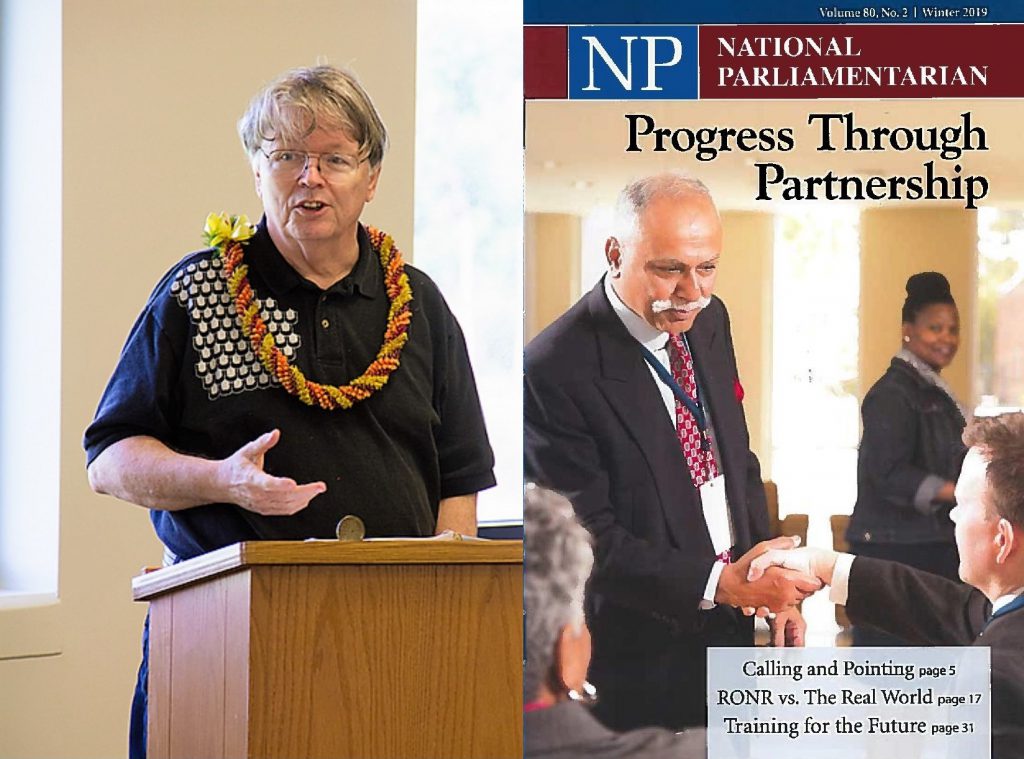
Dr. William Puette (1), Cover of National Parliamentarian journal (r)
Dr. William Puette, director of the Center for Labor Education & Research at UH West Oʻahu, has authored an an article for National Parliamentarian journal on the proper and improper uses of “calling the question” and “rising to points of order and information” under parliamentary procedure.
Puette, who is the only Certified Parliamentarian in the state of Hawaiʻi, wrote “Calling & Pointing: Common Traps and Pitfalls,” for the Winter 2019 issue of National Parliamentarian, which is the official publication of the National Association of Parliamentarians. Puette also teaches Parliamentary Procedure online through the CLEAR and is one of only a handful of Professional Registered Parliamentarians in Hawaiʻi. He also is past president of the Hawaiʻi State Association of Parliamentarians; and co-author of Nā Lula Hālāwai, a 250-page parliamentary guide to conducting meetings in Hawaiian.
Puette’s article discusses the need for maintaining order and enforcing rules against interruptions as essentials to civil debate during meetings, and that granting recognition to a member who is entitled to the floor is the principal duty of the presiding officer under parliamentary law.
There are only a select few exceptions under Robertʻs Rules of Order that allow members to speak without being first recognized by the chair, including those that are made by “calling for a division” after a close voice-vote and raising a “point of order” when a rule is being violated, Puette writes in the article. However, members’ use of calls and points in the context of parliamentary procedure, he explains, are open to improper use.
Puette notes that calling and pointing must be seen as unusual exceptions to the fundamental procedures of deliberation and decorum, and not simply as devices to speak out of turn. He concludes a presiding officer must exercise due diligence to ensure “any exceptions or privileges are being used properly and only when there is an actual urgent and pressing need, consistent with the demands of justice.”
Puette’s article will be submitted to the James & Abigail Campbell Libraryʻs repository for faculty research, DSpace, for inclusion.
